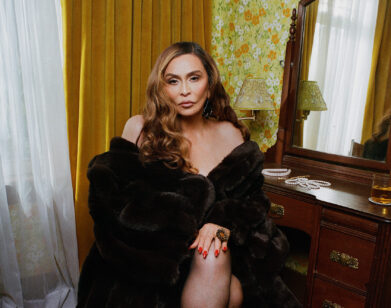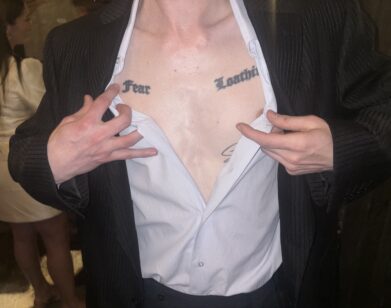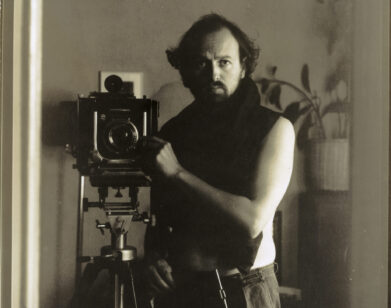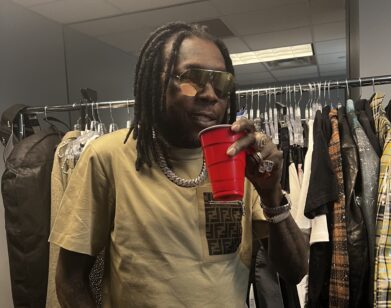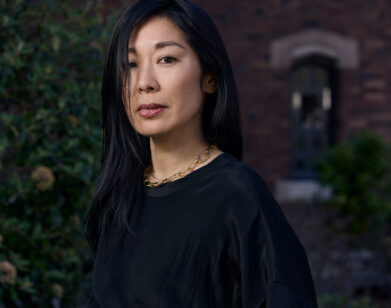Rosie Schaap Pours it Out
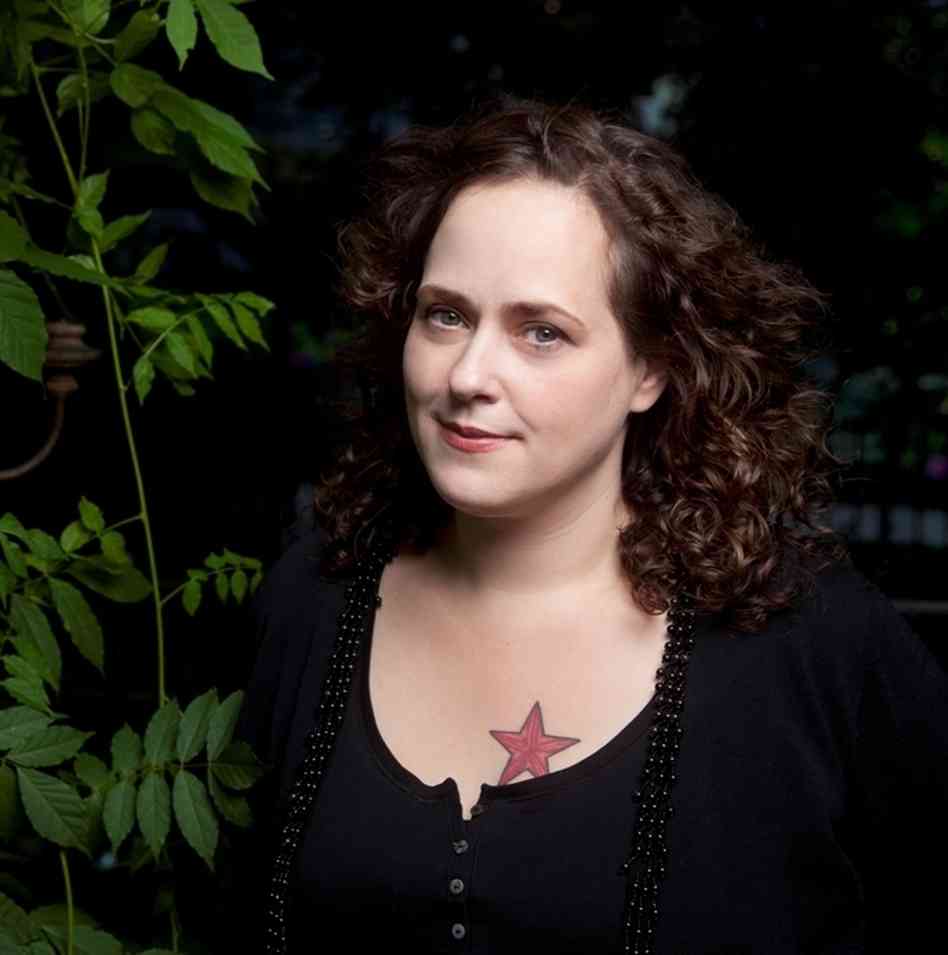
ABOVE: ROSIE SCHAAP. IMAGE COURTESY OF M. SHARKEY
In her memoir Drinking With Men (Riverhead), Rosie Schaap proves in vino veritas and more. The New York Times Magazine Drink columnist tells in tender and sometimes touching prose of her love affair with bars and the drinkers in them. A native New Yorker and natural storyteller, Schaap has grit and honesty galore. Her tales of fortune-telling in bars for beer when she was 15 years old, or returning to New York’s Tribeca after college to drink in a bar of a neighborhood that was being increasingly destroyed by gentrification, are perfectly human. Yet, her book is not about a desire for the oblivion of drinking too much. It is more about the joy and community that bar patrons can bring, the unlikely life story spilled out over a pint, the sympathy of a bartender at just the right vulnerable moment in our lives. We spoke with Schaap about not drinking alone, black outs, drinker’s advice (both good and bad), and why, for her, bars are a home away from home.
ROYAL YOUNG: How did you fall in love with drink?
ROSIE SCHAAP: Obviously I love drinking, but I’ve never thought of myself as really being in love with drink. I’m definitely in love with bars. Drinking alone at home has never appealed to me. I’m not judging people who do it, but for me, drinking is always connected to being in a bar with other people. It’s the culture and community of bars that I’m hopelessly in love with. I love my whiskey, I love my Guinness, I love my gin cocktails in the spring and summer, but loving something and being in love aren’t the same.
YOUNG: Have you ever gotten drunk alone? Because I think it can be awesome. Not all the time, and not in the morning.
SCHAAP: I’m sure for some people it can be great. When I was very young, and I know you’re a New Yorker too, we all knew what bars we could get served in when we were underage. Occasionally, I would skulk off to one of these bars by myself as a teenager. It was a test. I wanted to see if I would get served, and get kind of hammered. But in the course of a half hour, I was always friends with the bartender. To me, that didn’t feel like getting drunk alone. Once you start talking to people in bars, you’re not alone.
YOUNG: Let’s talk about that line, the difference between the drinker who is pursuing a blackout state and the drinker who is more interested in the drinking culture. There’s a huge difference.
SCHAAP: I find it interesting that you said people who pursue blackouts. There are those people. I wrote about a terrible blackout I had when I was 17 years old, and for me it was completely scary, and the next day I wanted to kiss the ground and I felt very grateful to be alive. I was so much more cautious about my intake after that. I want to drink to have a good time. Even when I was younger, I felt that liquor was there to loosen one up enough to be a more open conversationalist, to feel more comfortable in one’s skin, not to just get fucked up. I don’t like that loss of control at all. I don’t think I’ve ever purposefully decided to get drunk, though of course it has happened a number of times.
YOUNG: [laughs] Never. Really?
SCHAAP: [laughs] Really. I know it’s shocking. I go into bars with the hopeful expectation that I will run into people I like and talk about interesting stuff and, I know this sounds peculiar and a little earnest, but maybe learn something from them. And I have. I’ve learned a lot from my fellow drinkers over the years.
YOUNG: I think it’s awesome that drinkers can have a positive spokesperson in you.
SCHAAP: I appreciate that. I never saw myself as a spokesperson or role model for anything. And I resist that. But still, thank you.
YOUNG: Absolutely. I think drinking can really bring out interesting sides to people, and I believe in in vino veritas.
SCHAAP: Oh, yeah. I’ve met such a great parade of humanity in my years in bars. When I moved back to New York after college, I fell into a bar in Tribeca. You understand as a New Yorker that what Tribeca means now and what it meant in the early ’90s are two very different things. But even back then, I couldn’t shake this feeling that I was arriving very late at that party. Whatever really lively art community had built up there over the past two decades was in decline and being pushed out. The neighborhood was getting very prosperous and really desirable to a certain set of people that would never have thought of living there 10 years before. I hit the bar scene in that neighborhood just as it was shifting. They knew stuff about New York that was news to me, that was livelier and sexier. I was very happy to just sit there and listen to stories of Max’s Kansas City, Tyrannosaurus Rex and the early days of CBGB that I hadn’t been able to live. There were also ironworkers hanging out there, and cab drivers, and real down-and-outers who I never figured out what they did outside of the bar.
YOUNG: I think drinkers give the best advice.
SCHAAP: Sometimes they do. Sometimes also the worst.
YOUNG: [laughs] That is very true.
SCHAAP: [laughs] I’ve always liked dispensing advice, though I’m not sure I’m really good at it. But I feel lucky that people seem to find me easy to confide in. That is probably another reason I like bartending.
YOUNG: Do you know where that archetype comes from of the bartender as this figure where you go to the bar and tell them all your troubles?
SCHAAP: Oh it’s an archetype, it’s a cliché, it’s a stock figure. I don’t know where that comes from. A bar is where you can disclose or withhold as much as you wish. I think that absence of pressure that’s in a professional environment or at home, you don’t have to do that in a bar. That makes it a great place to open up to people.
YOUNG: It’s so cool that for you being a regular at a bar seems to be about a sense of community, but also opening yourself up to new experiences too.
SCHAAP: Well, I certainly enjoy it.
DRINKING WITH MEN IS OUT NOW.

